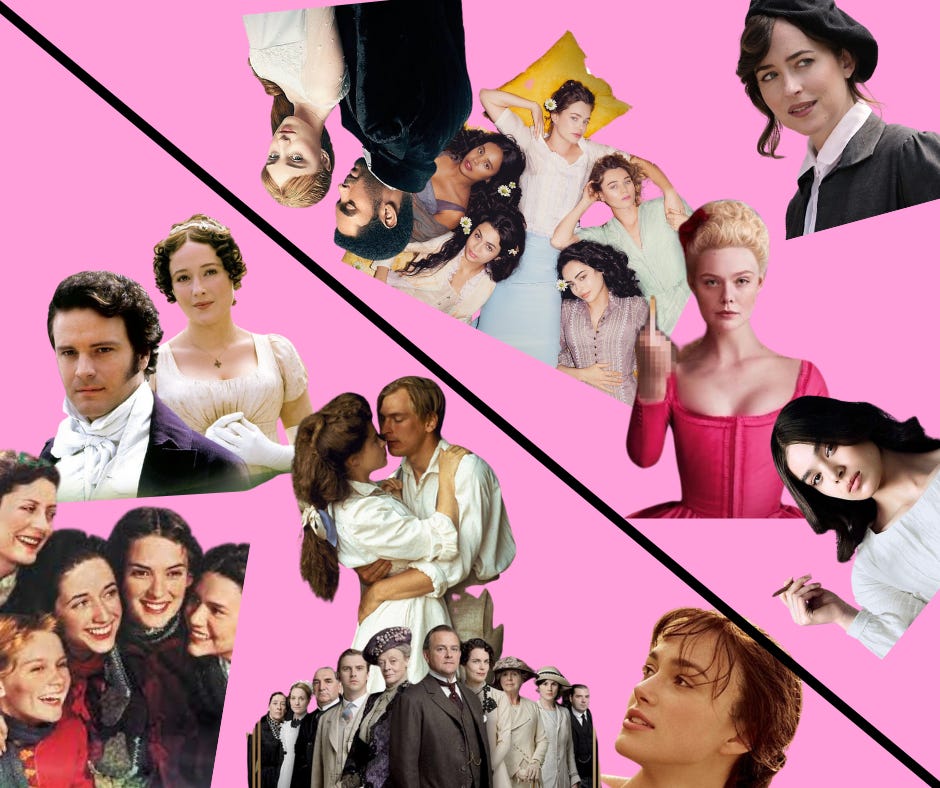"It don't," "Fuck", The Tiffany Problem, and the Period Drama
Or: did it feel different to be a person in the past?
I absolutely adore a period piece: the more balls and gowns and wistful strains of violin music the better. And we period-drama lovers are living in heady times, because, as of the past few years, there’s a new version of the genre. I’m thinking of things like The Great, and the new Persuasion adaptation with Dakota Johnson, and Dickinson, and a new Edith Wharton adaptation called The Buccaneers, and Bridgerton. These shows, the Deliberately Anachronistic Period Dramas, are raunchy and sexy and full of people behaving badly (with varying degrees of success—I think The Great does this to hilarious effect, but I couldn’t finish an episode of Bridgerton). The promise of the Deliberately Anachronistic Period Drama is that you’re going to see a lady in eighteenth-century clothes ride in a horse-drawn carriage and say things like “He may be an earl, but he has daddy issues” in a posh accent while a Lizzo song plays in the background. Whereas something like the 1996 Pride and Prejudice, or A Room with a View or Downton Abbey tries to depict the past via literal truth, prioritizing verisimilitude, the Deliberately Anachronistic Period Dramas derive their appeal from the way they blend fidelity to the past with deliberate anachronism. Or, at least, that’s the idea. But I don’t think it’s true—there’s something much stranger going on here, as we try to reconcile our perception of the past with the reality of it, whatever that is.
Keep reading with a 7-day free trial
Subscribe to Wicked Tongue to keep reading this post and get 7 days of free access to the full post archives.





